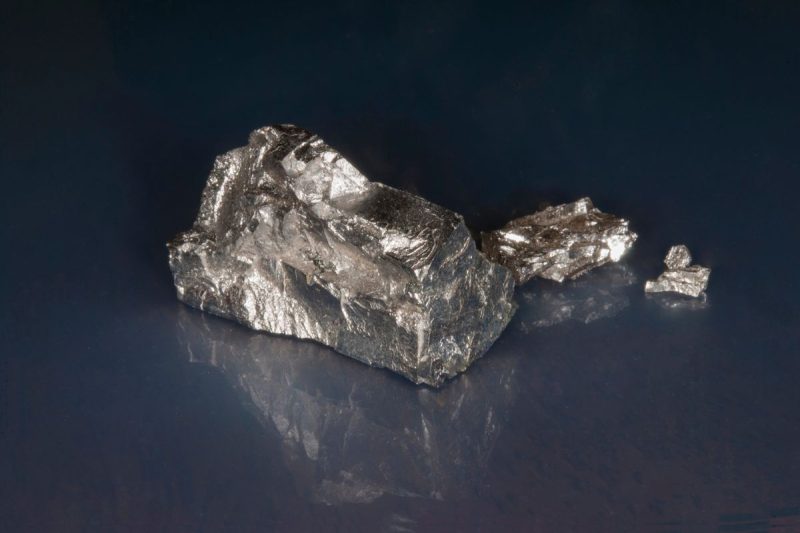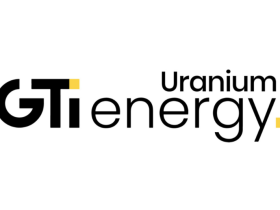Chromium is a hard, brittle gray metal with both a high melting point and resistance to corrosion.
Those characteristics make it a key element in stainless steel production. In fact, chromium producers sell about 60 percent of their output to the steel industry. Interestingly, however, the steel industry consumes chromium somewhat indirectly in that making stainless steel requires ferrochrome, an alloy of chromium and iron that contains 50 to 70 percent chromium by weight. Essentially, chromium is used to produce ferrochrome, which is then used to make steel.
South Africa is home to the vast majority of the world’s chromite deposits, which is where chromium comes from, and is the largest chromite ore producer. Many countries depend on South Africa for chromium imports, including China, which is the world’s top chromium consumer and top ferrochrome producer, as well as the top stainless steel producer.
What other nations provide the world’s chromium? Here’s a brief overview of last year’s five top chromium-producing countries, according to data from the US Geological Survey’s most recent report on chromium. All in all, global chromium production slipped by 900 metric tons (MT) year-on-year in 2023 to a total of 41 million MT.
1. South Africa
Mine production: 18 million MT
South Africa produced 18 million MT of chromium in 2023, down from the 19.1 million MT produced in 2022. Chromium production requires a lot of energy, which can be a problem in South Africa as electrical power supply is sometimes constrained in the country. This was the cause of its lowered output last year, according to the US Geological Survey. However, it continues to beat out the rest of the world’s chromium producers by a wide margin.
Some of South Africa’s most notable chromium companies include privately owned Samancor and global metals giant Glencore (LSE:GLEN,OTC Pink:GLCNF). Samancor produces the metal out of several mining and smelting operations in the country, including its Western Chrome Mines, Eastern Chrome Mines and the Middelburg Ferrochrome alloy plant.
Glencore’s chromium production at its Bushveld Complex is responsible for much of the country’s chromium output. The company’s ferrochrome production for 2023 came in at 1,162,000 MT, which is 22 percent lower than the previous year, largely due to planned smelter downtime during the winter season, when power prices are higher.
2. Turkey
Mine production: 6 million MT
In 2023, Turkey saw its production of chromium pick up by 590,000 MT over the previous year, allowing it to clock in at 6 million MT and tie with Kazakhstan for the second spot on this list.
Yildirim Group is a major player in the Turkish chromium industry through Eti Krom, which it acquired in 2004. Eti Krom is the world’s biggest hard lumpy marketable chrome ore producer, and it is the only chrome ore supplier in Turkey that can extract chromium throughout the entire year. Yildirim Group states that Eti Krom is the only high-carbon ferrochrome producer in Turkey.
2. Kazakhstan
Mine production: 6 million MT
Last year, Kazakhstan produced 6 million MT of chromium, which is consistent with its output for the past few years. Although Kazakhstan is not the number one chromium producer, the country ranks first in terms of global reserves.
One major chromium operation in the country is the Vokshod mine and plant, owned by Yildirim Group. Diversified miner Eurasian Resources Group is also a big presence in Kazakhstan’s chromium space. The company’s ferroalloys division includes Kazchrome, which in turn is made up of four operating divisions: the Donskoy ore-mining and processing plant, the Aktobe ferroalloys plant, the Aksu ferroalloys plant and the Kazmarganets mining enterprise.
4. India
Mine production: 4.2 million MT
India’s chromium production came in at 4.2 million MT in 2023, up 200,000 MT over 2022. The country holds the world’s third largest chromium reserves at 79 million MT. Little information is available on the Indian chromium space. In a past mineral commodity summary for chromium, the US Geological Survey stated that chromium ferroalloys are produced at plants in the states of Andhra Pradesh, Chhattisgarh, Gujarat, Odisha and West Bengal.
Tata Steel (NSE:TATASTEEL,BSE:500470) has a ferroalloys and minerals division that includes its brand Tata Tiscrome. India exported US$10.96 million worth of chromium ores and concentrates during the 2022/2023 fiscal year, as per the Economic Times, with the majority taken in by China. In mid-2023, the Indian government set export restrictions on these products in an effort to shore up domestic supplies for its stainless steel industry.
5. Finland
Mine production: 2 million MT
Finland first made it onto the list of top chromium-producing countries in 2018, and last year its output hit 2 million MT, on par with the previous year.
Finland’s major chromium-producing operation is the Kemi mine, owned by global stainless steel manufacturer Outokumpu (FWB:OUTA). Work is currently underway to make Kemi the world’s first carbon-neutral mine by 2025.
In contrast to South Africa, where the majority of chromite supply is exported to China, Finland’s chromite output has been integrated with domestic ferrochrome production. However, Finnish chromium production is still making its way to China and even India, accounting for 20 to 25 percent of Outokumpu’s ferrochrome output.
Securities Disclosure: I, Melissa Pistilli, hold no direct investment interest in any company mentioned in this article.





